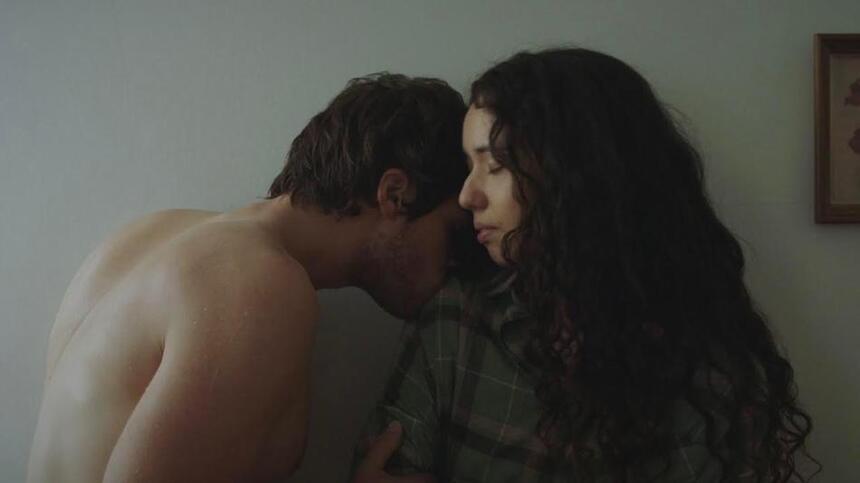SXSW 2023 Review: THIS CLOSENESS, The Awkward Loneliness of Modern Love

Have social interactions with strangers always been fraught with awkwardness, or has contemporary society and its technological trappings made it worse? How do we decide on new rules for behaviour and etiquette, especially when crossing cultural and class lines? I'd argue that there have always been rules that are often unspoken, and people's own idiosyncrasies that make perfect sense to them seem uncouth to others, and those others are often insensitive to differences. Perhaps our modern trappings make this worse.
This awkwardness and those who carry it are on intimate display in Kit Zauhar's sophomore feature This Closeness. Something of a thematic cousin to her first film Actual People, This Closeness explores further themes of strangers thrown together, miscommunication, and living lives of quiet desperation in world seemingly devoted to keeping people lonely.
Tessa (Zauhar) and her boyfriend Ben (Zane Pais) have traveled to his hometown of Philadelphia for a high school reunion. They've rented a room on Airbnb, sharing with an apartment with regular tenant Adam (Ian Edlund), who's renting it out while his roommate is away for an extended period. Adam claims he did so to meet people, yet he rarely leaves his room; and rather than enjoying this trip together, Ben spends most of his time with friends, frequently leaving Tessa by herself in the apartment.
Choosing to set the entire film in this very small two-bedroom apartment, with just the first and last shot on the staircase access, is both an interesting challenge to a filmmaker, and an opportunity to allow the themes and the attending emotions to literally bounce off the walls. From the moment Tessa and Ben enter the space, everything is strained and stuttering. Renting a room in someone's lived-in apartment means you're a guest, but this isn't a hotel. You become part of the fabric of their lives, but you have demands on that fabric that cause conflict. Tessa and Ben's judgement (bordering on snobbery) towards James and how he lives, seems at the least a bit unfair and at the worst somewhat cruel.
All the characters work in fields that revolve around communication: Ben is a journalist, Adam is a video editor, and Tessa creates ASMR videos. And yet, all of them are terrible at communicating. Part of this comes from the hesitation between strangers, part from lovers who are still determined to only let their other half see certain parts of themselves (for fear the bad parts might scare their lover off, or might show them for what they truly are: a monster). That might be an extreme observation - but this quiet and pervasive cruetly that is born from ignorance and the misplaced desire to protect oneself can lead to such damage; this misplacement meaning we might miss those connections we desperately need.
And what would it mean, if we really could communicate? Would a moment of honest vulnerability shared between two strangers create a bond, even a temporary one, that could help each through their quiet pain? Or would it only make them build another part of a mask they would hide behind? Zauhar doesn't give an answer for this, because there isn't one; life and its trappings, on how younger people must scramble even more to survive, mean that vulnerabilities become greater liabilities, especially if you have to rely on others. Surviving comes to mean more often, ignoring deep rooted problems, even if it might mean a deep unhappiness.
Zauhar is quickly honing her talent in revealing the compounding problems in the lives of Gen Z adults - those who are truly feeling the adverse affects of a society teetering on collapse, whose promises of fulfillment have turned out to be empty, and whose continued separation from community leaves them vulnerable. This Closeness is part of a new wave of American indie cinema, one that shows how interwoven our emotional wellbeing is with vulnerability to the forces of material survival.







